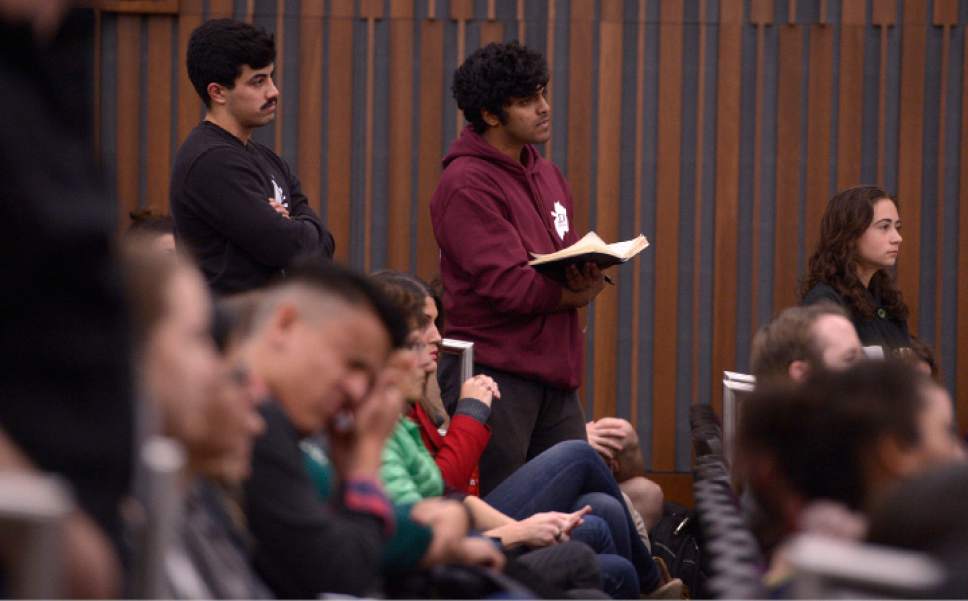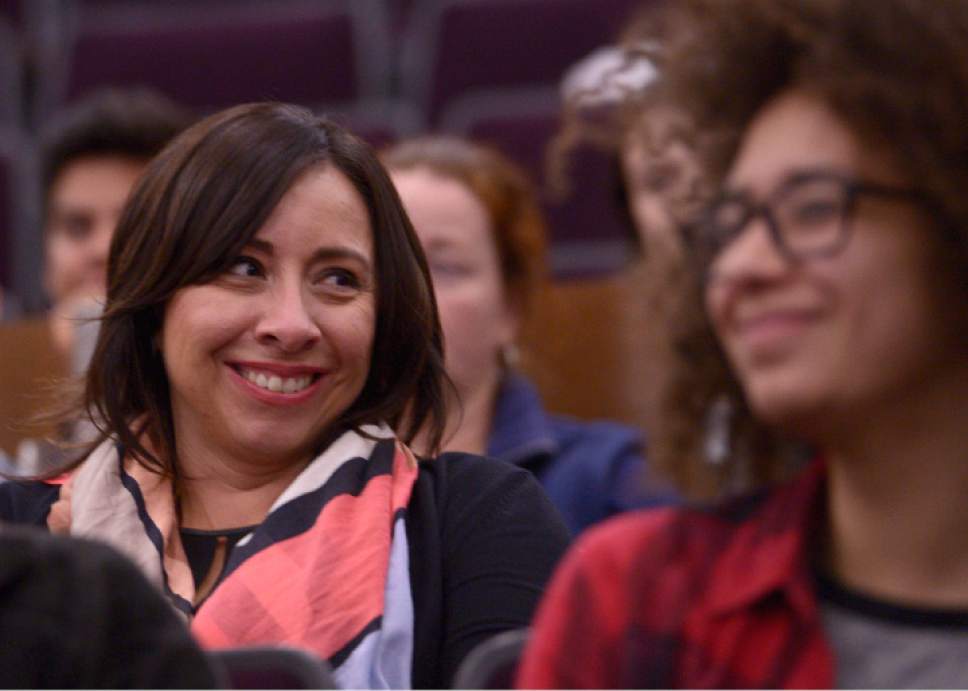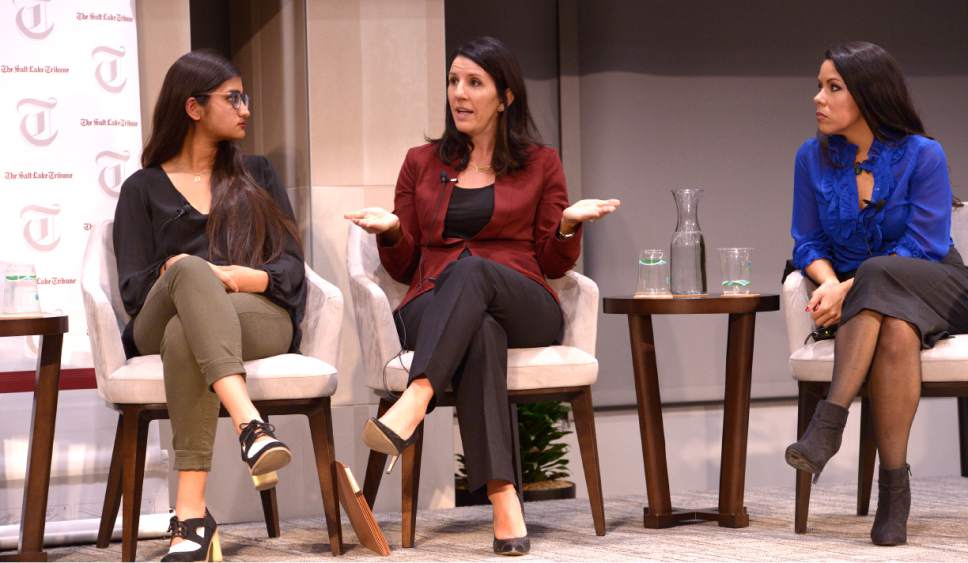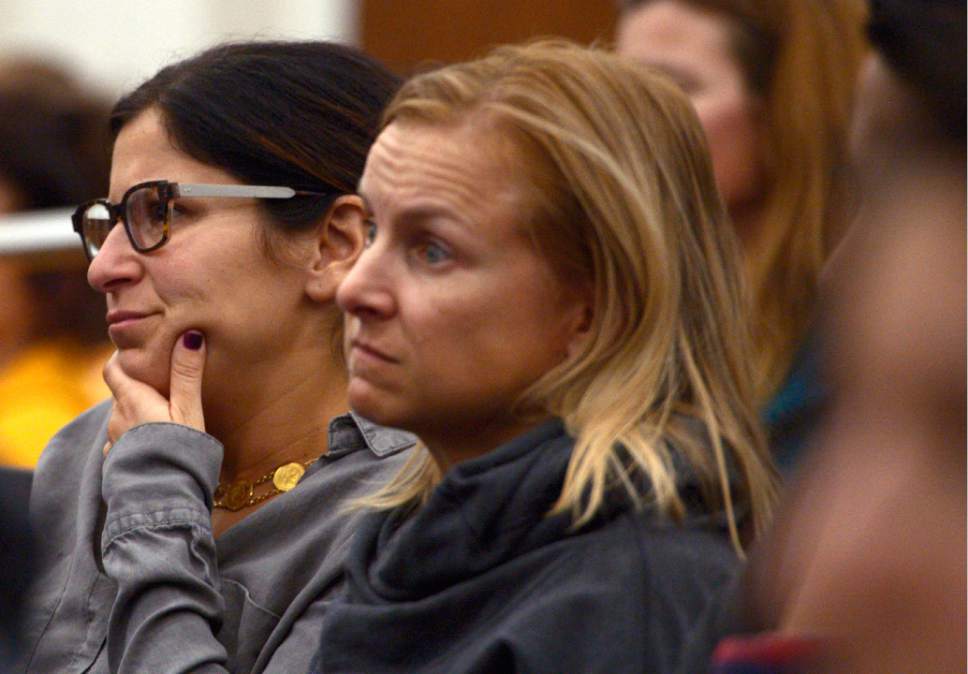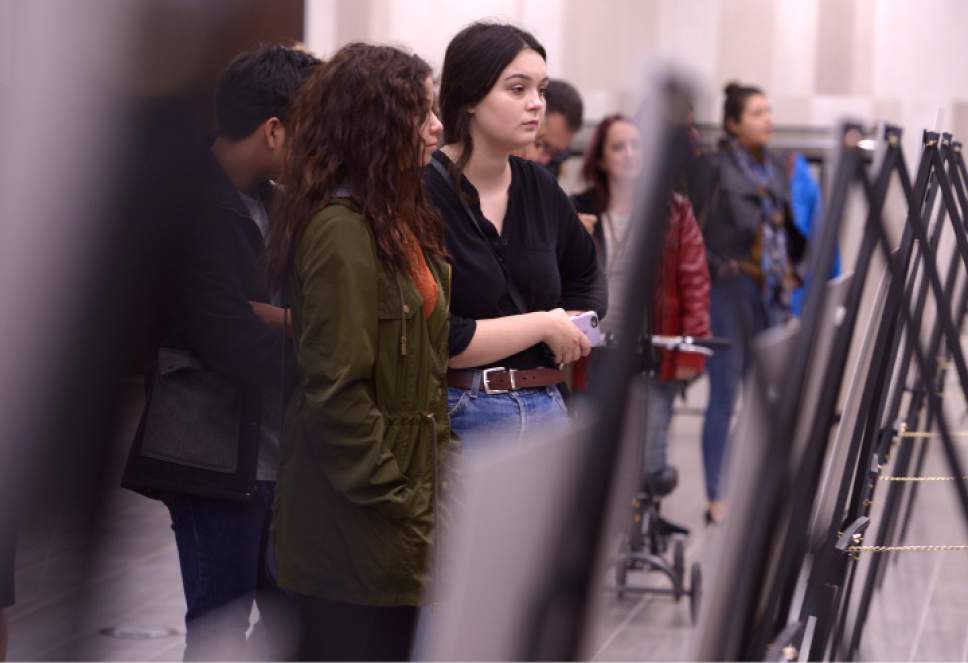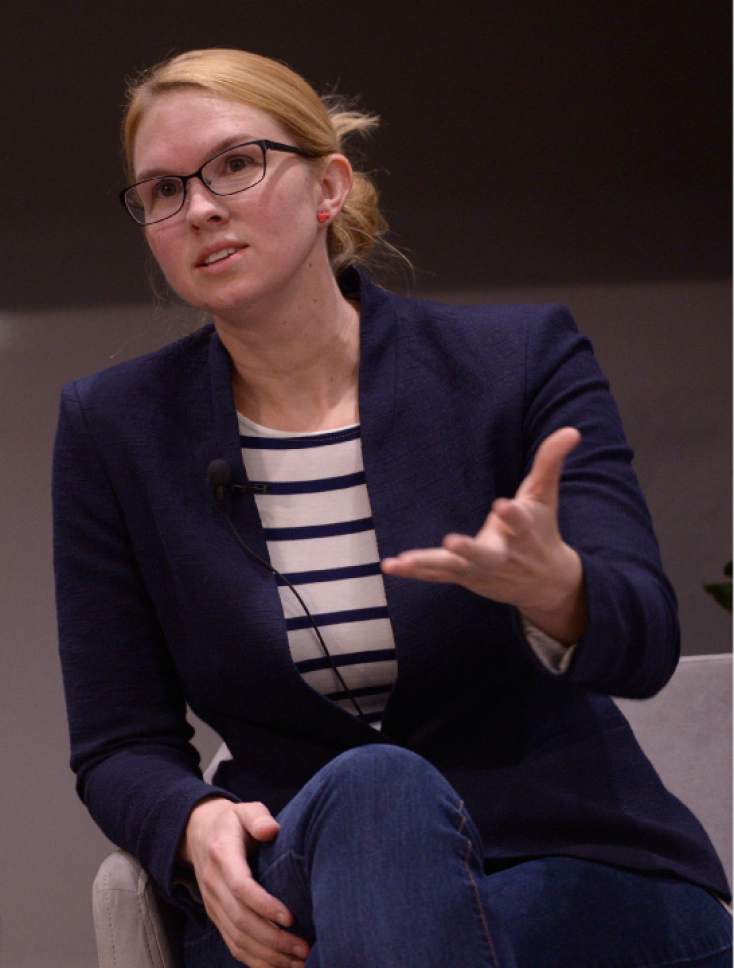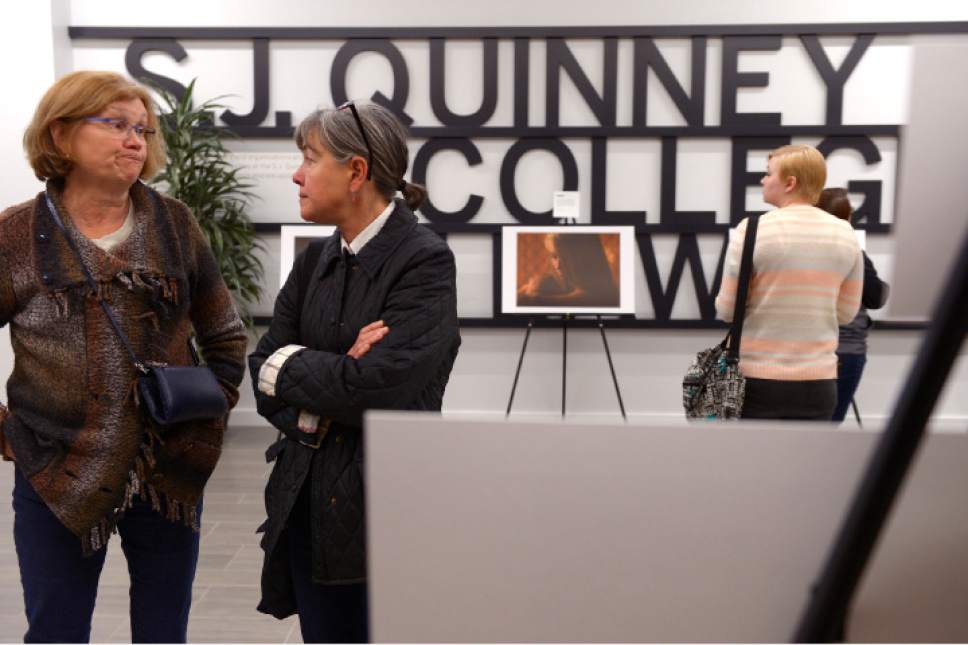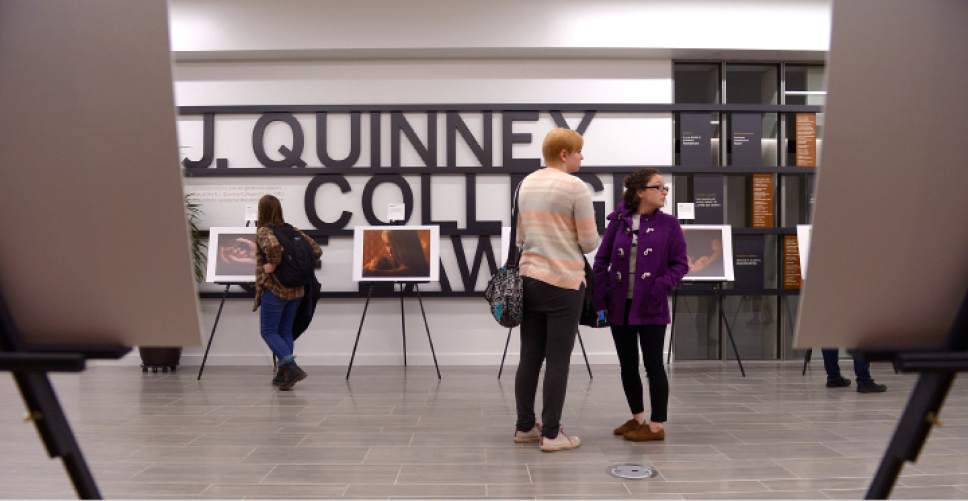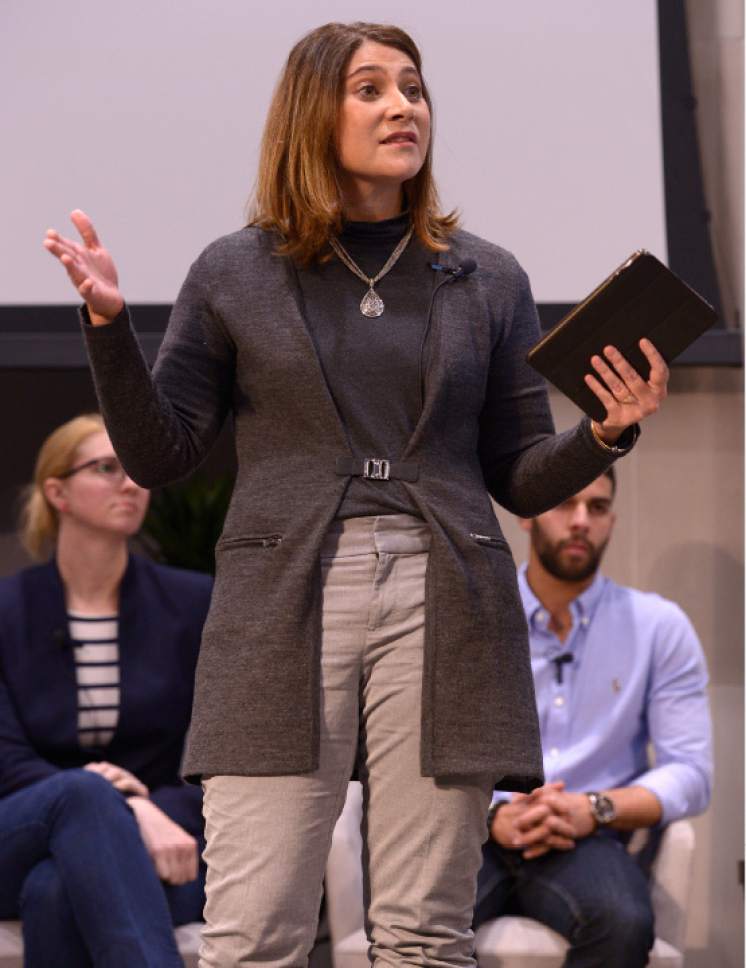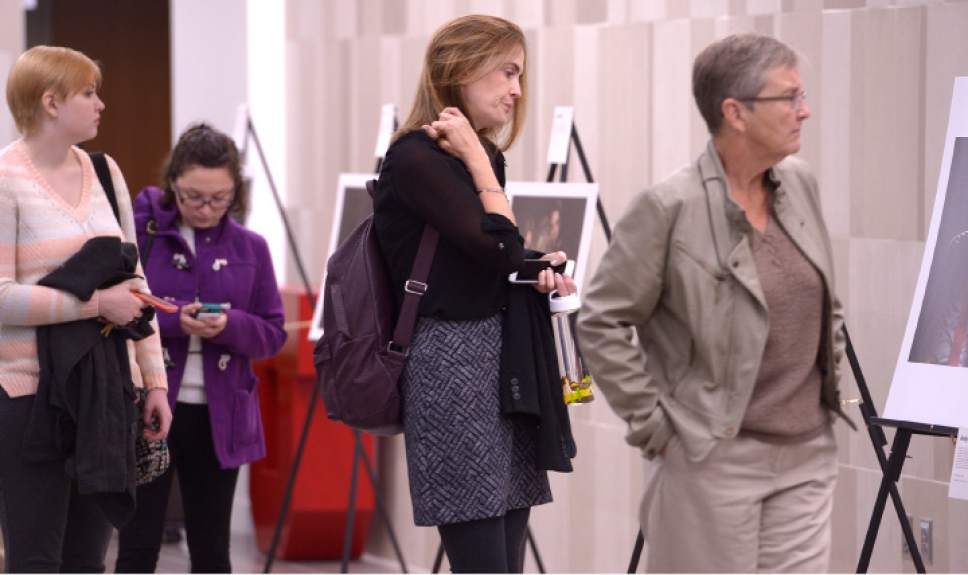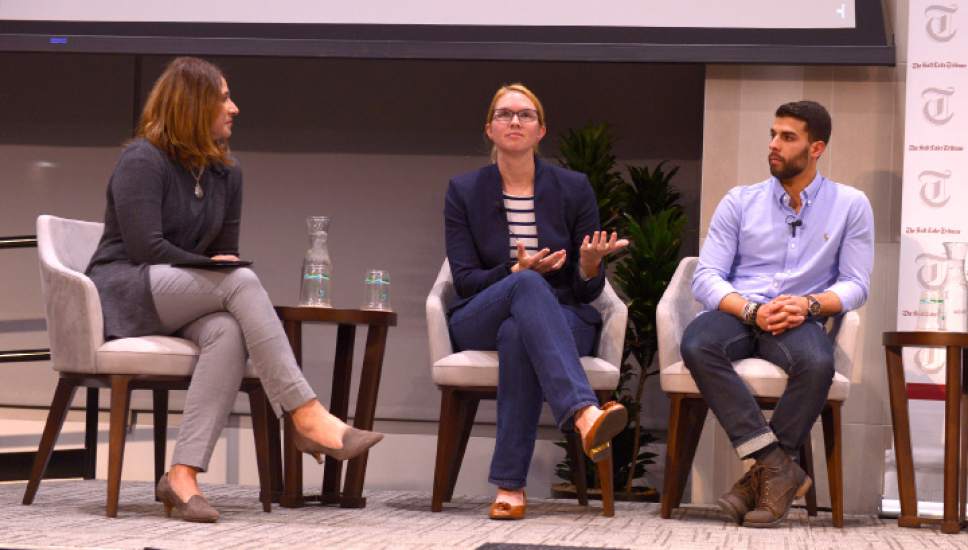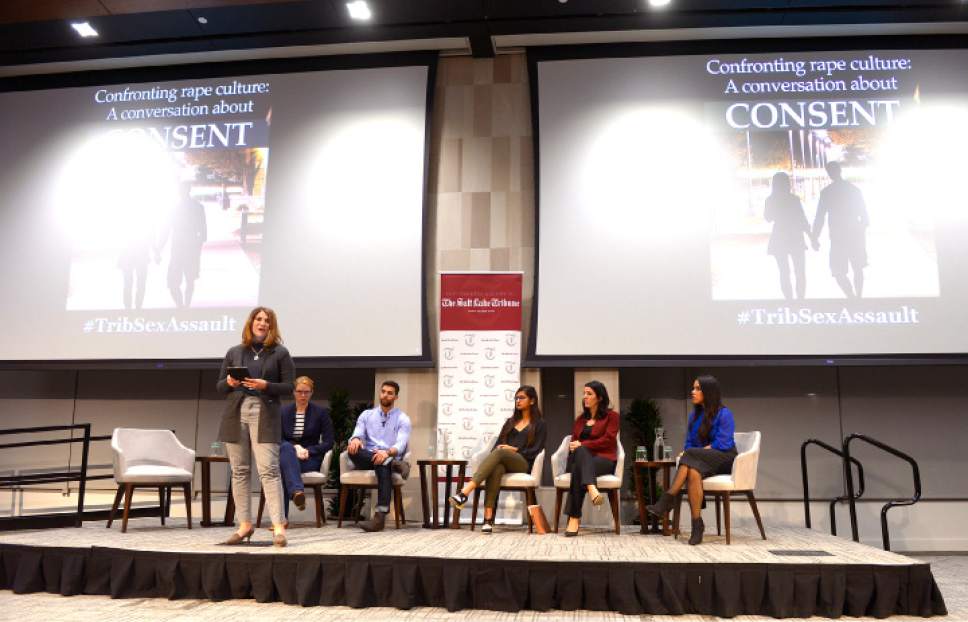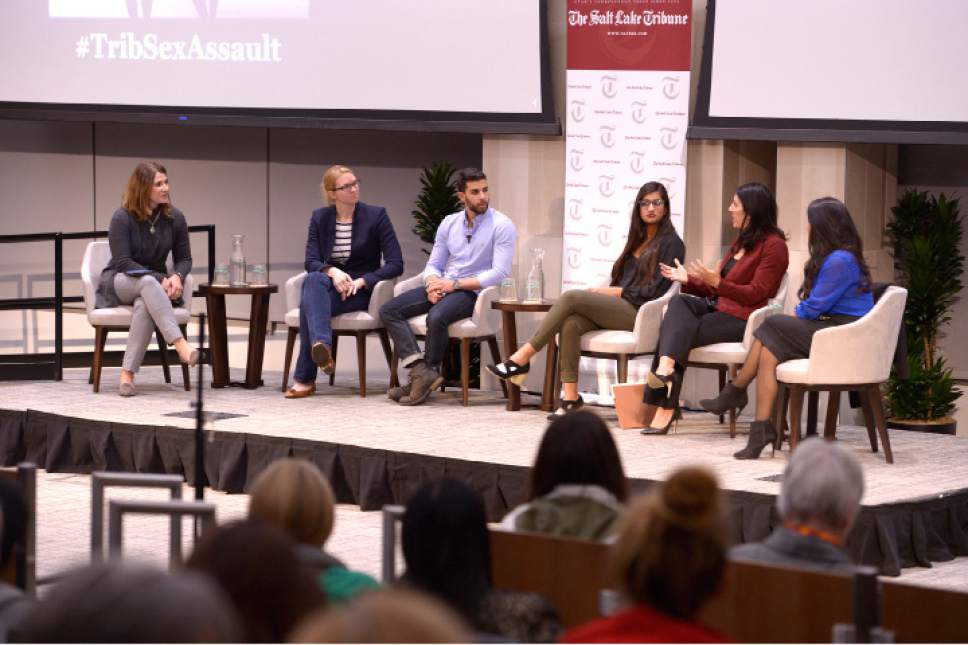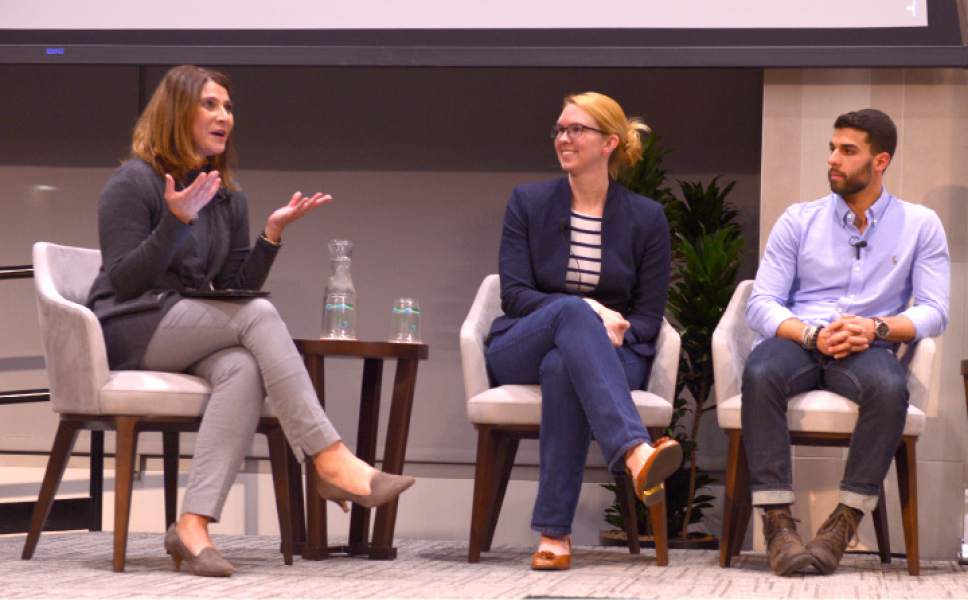This is an archived article that was published on sltrib.com in 2016, and information in the article may be outdated. It is provided only for personal research purposes and may not be reprinted.
When Saeed Shihab walked onto the University of Utah campus for the first time in 2013, he had never learned about consent or why it's important in sexual situations.
Consent wasn't a thing that was talked about in high school, the college senior said Wednesday during a Salt Lake Tribune panel on the topic. It wasn't until weeks after he started college that he joined the Beta Theta Pi fraternity — which partners with Rape Recovery Center to promote awareness — that he began to learn.
Now he defines consent simply: "If it's not a yes, it's a no."
What consent is, why it's necessary and when it's possible for a partner to give it were the central topics Wednesday during "Confronting Rape Culture: A Conversation about Consent." Shihab was one of five panelists who spoke to an audience of about 135 people at the U.
Another student panelist, Kiman Kaur, said she also didn't learn about consent until she got to college. Kaur, who is the president of the university's chapter of Students for Choice, says it's now a normal topic with her friends.
"It took us coming to college to feel like we could have these conversations," she said.
But Kaur said they have challenges in educating their fellow students about consent and campus rape. At events, students will take condoms, but not the literature that teaches them about consent. And at the end of the events, people ask, "Where are the men?"
Shihab is frustrated by the lack of men at those sorts of events.
"It's not a women's issue," he said. "It's on everyone to make a difference."
The panelists — which also included investigative reporter Jessica Luther, defense attorney Cara Tangaro and Nubia Peña, who is a training and prevention education specialist at the Utah Coalition Against Sexual Assault, or UCASA — said it's important to have continuing conversations to educate college students.
"We can't pretend that Utah's not different culturally," Tangaro said. "… We can't pretend that sex isn't going on."
Students often come to college campuses after receiving little sex education, the defense attorney said, and are exposed to alcohol, drug use and sex for the first time. It can be a recipe for disaster if they don't understand boundaries.
"We cannot expect our children to know the information," Peña said, "if we aren't providing them with the information."
And if students are sexually assaulted, Kaur said, many don't know where to find their campuses' Title IX offices, the places such attacks are reported. At the University of Utah, the Title IX Office is near the dean's office, Kaur said, which can give victims the impression that they are in trouble or "being called to the principal's office." At Brigham Young University, workers with the Title IX Office were located near the Honor Code Office.
Luther, who is the author of "Unsportsmanlike Conduct: College Football and the Politics of Rape," said she's seen colleges across the nation working hard to comply with the evolving role of federal Title IX regulations in responding to sexual assault. In April 2011, the U.S. Department of Education clarified that Title IX — a law that prohibits sex discrimination in schools receiving federal money — also applies to cases of sexual assault. The law requires colleges and universities to promptly investigate cases of sexual misconduct and take steps to resolve the situation.
This requirement, Luther said, has left universities "desperately" trying to comply — giving some victims the impression that the schools are "focused more on compliance than compassion."
While the public should work to hold institutions and people in power accountable, she said, people should also bring lessons of consent to their own homes. Luther has educated her 8-year-old son about consent, she said, by asking him if he wants a hug and being OK with it if he says no.
"Practice good consent in your life," she told the audience.
Twitter: @jm_miller


